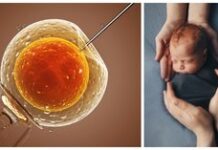
Dan “Dry Dock” Shockley is a retired United States Navy veteran and an 8-year hereditary attenuated familial adenomatous polyposis (AFAP) survivor with a permanent ileostomy. He is an active patient advocate across multiple organizations and strives to bring awareness to hereditary colon cancer. After receiving his AFAP diagnosis, he enrolled in the Johns Hopkins Hospital and Creighton University hereditary colon cancer registries. Through the years, he has requested and received Colon Cancer Month, Rare Disease Day, and Ostomy Awareness Day proclamations from the governors of Hawaii, Idaho, and Texas, as well as from the mayor of each town he resided in each of these states. His current advocacy efforts are to establish legislative jurisdiction to designate the 4th week of March as Hereditary Colon Cancer Awareness Week.
It was during my first and only colonoscopy at age 51 that 100 polyps were discovered embedded throughout my colon, rectum, and anus. I was immediately referred to a certified genetic counselor for further evaluation and genetic testing. The test results confirmed the diagnosis of attenuated familial adenomatous polyposis (AFAP), a genetic condition where a person develops colon polyps that could lead to colorectal cancer.
I knew nothing of this disease before meeting with my genetic counselor and colorectal surgeon. They began educating me on the condition in order to provide effective counseling regarding my options for diagnosis and treatment. They also educated me on my genetic situation so that I could choose how to best inform my family. By providing me with great care, they were essentially going to treat an entire family.
During my meeting with the genetic counselor, we discussed my family history of cancer. There was none that I or my siblings knew of. We also discussed the genetic mutation that I was thought to possibly have, which was familial adenomatous polyposis (FAP). But a gene sequencing DNA test would be able to determine the exact diagnosis. The results arrived 6 weeks later, confirming the rare diagnosis of AFAP, which is a subtype of FAP.
After my diagnosis, my health care team and I discussed the type of surgery I would need and what life would be like with an ostomy. I was eager to learn about the mutation, the type of surgery, and life as an ostomate. All of this information was a lot to digest. However, my military experience equipped me to adapt, improvise, and overcome. Throughout this process, my certified genetic counselor and colorectal surgeon encouraged me to read about my condition. I divided my research efforts into 3 phases: first, I would learn about AFAP. Then, I would learn about total proctocolectomy with ileostomy, which was the type of surgery I would receive. During this procedure, my colon, rectum, and anus would be removed (proctocolectomy), and then a piece of my small intestine would be pulled through an opening in my abdomen to pass waste out of my body (ileostomy). Then, I would learn about life with a permanent ostomy. To better prepare myself for life with AFAP, I created a binder to hold all my medical reports for future reference.
It’s important to note that I didn’t have any symptoms or family history when I was diagnosed with AFAP. The mutation manifested in my small intestine, stomach, and left eye, so I would also need routine ophthalmology examinations and endoscopic procedures of my stomach and small intestine. I embraced the diagnosis from the onset. That said, my mindset was, and still remains, not to dwell on things I’m unable to control, such as medical conditions. What I can control is my attitude. After 5 decades on God’s green earth, my positive attitude has brought me this far. So why change? Furthermore, worrying is not the cause of my condition. Therefore, worrying will not make it go away. Reading about such a diagnosis and asking my medical team members questions had a positive impact on my outlook.
During my 22-year Navy career, I learned that mental and physical strength are important attributes to possess, especially in the face of personal or professional adversity. I feel maintaining a positive attitude while committed to the mission is instrumental in achieving success. This was evident during my numerous deployments to the Persian Gulf. When faced with challenges, both physically and professionally, I maintain a positive attitude and use the many resources that allow me to better understand the situation. Challenges, such as a diagnosis of AFAP, are opportunities for me to overcome adversity.
For those experiencing a similar diagnosis, I suggest establishing and maintaining an open dialogue with family members as well as your medical team members, including your certified genetic counselor. I prepared a binder and retained as many documents about my case as I could. Reviewing medical researchers’ peer-reviewed publications has also been an invaluable source of information directly related to my diagnosis.
There were 2 acronyms I created shortly after my diagnosis and then ostomy surgery: Full Assurance Influenced Through Hope (FAITH) and Attitude Determines the Ability for a Positive Transformation (ADAPT). FAITH is believing in what we’re unable to see. For example, we can see the tree branches swaying in the breeze. However, we’re unable to see the breeze; we just see the effect of it. ADAPT is about learning to adjust. It’s been said we’re unable to change the direction of the wind. But what we can do is adjust our sails. After 22 years in the Navy assigned to 7 different ships, I’m good at adjusting. My positive attitude has had a direct impact on my strong faith and my ability to adapt to life as an ostomate with a rare disease. Hopefully, your positive attitude can do the same for you.






